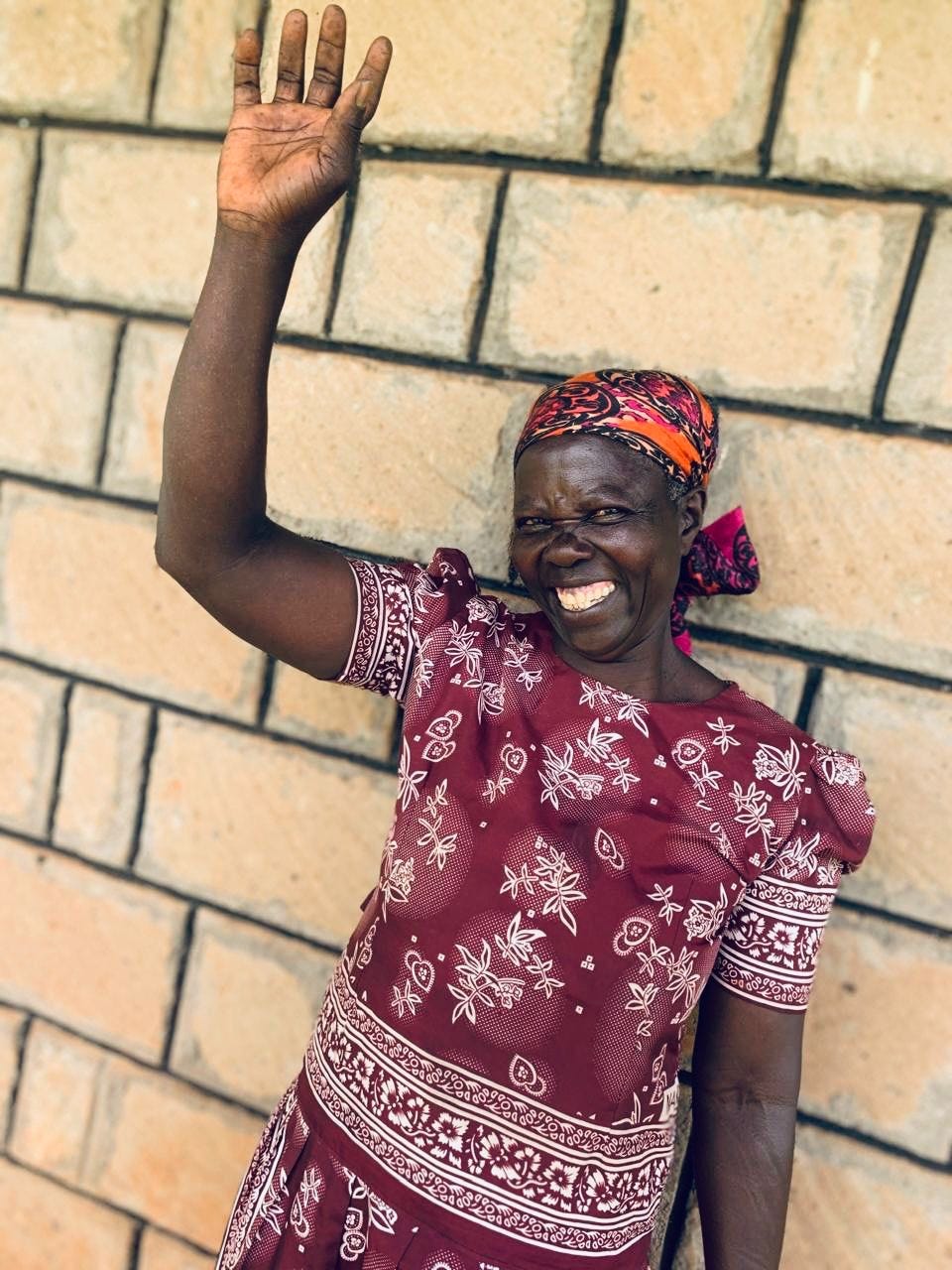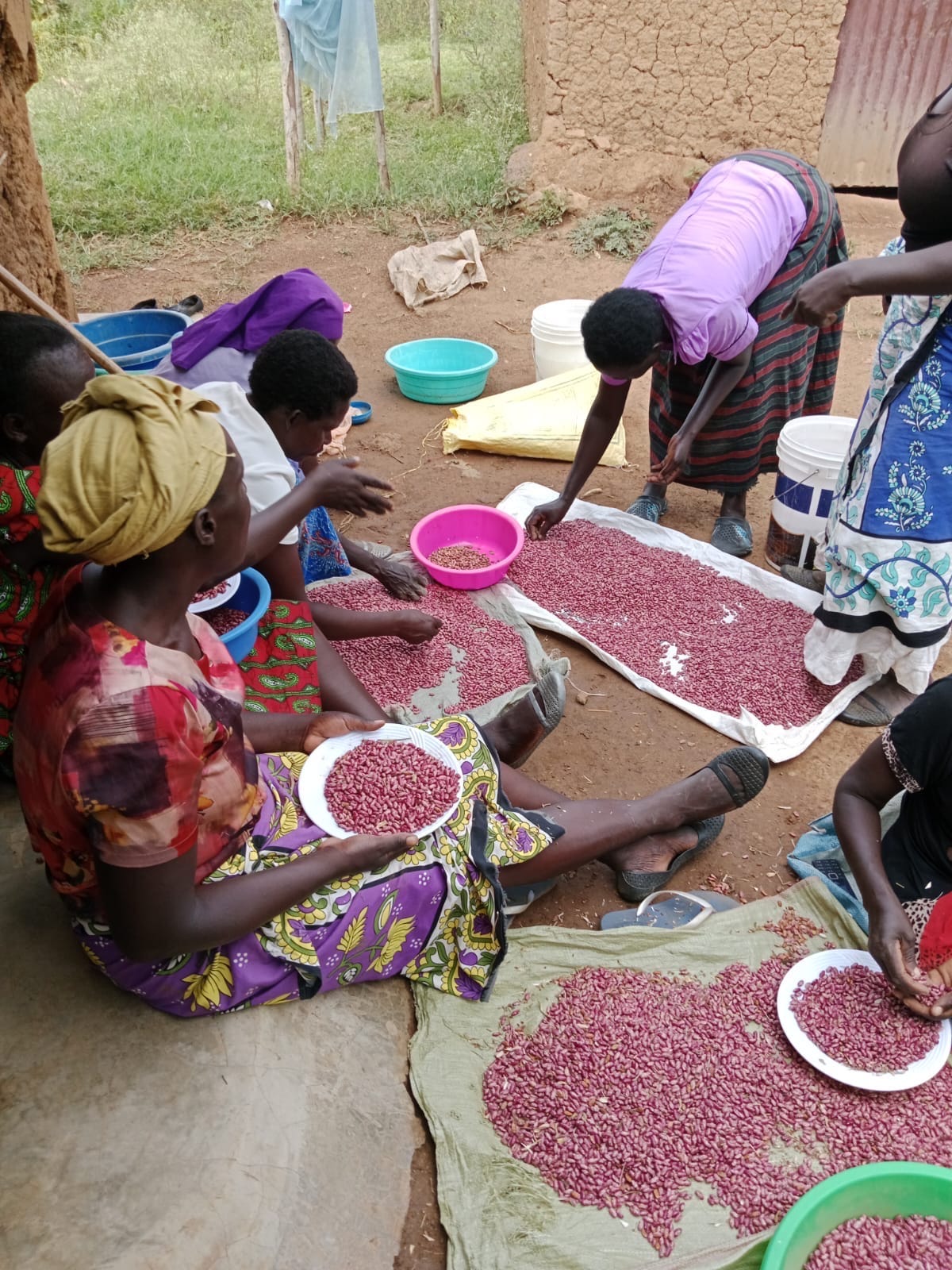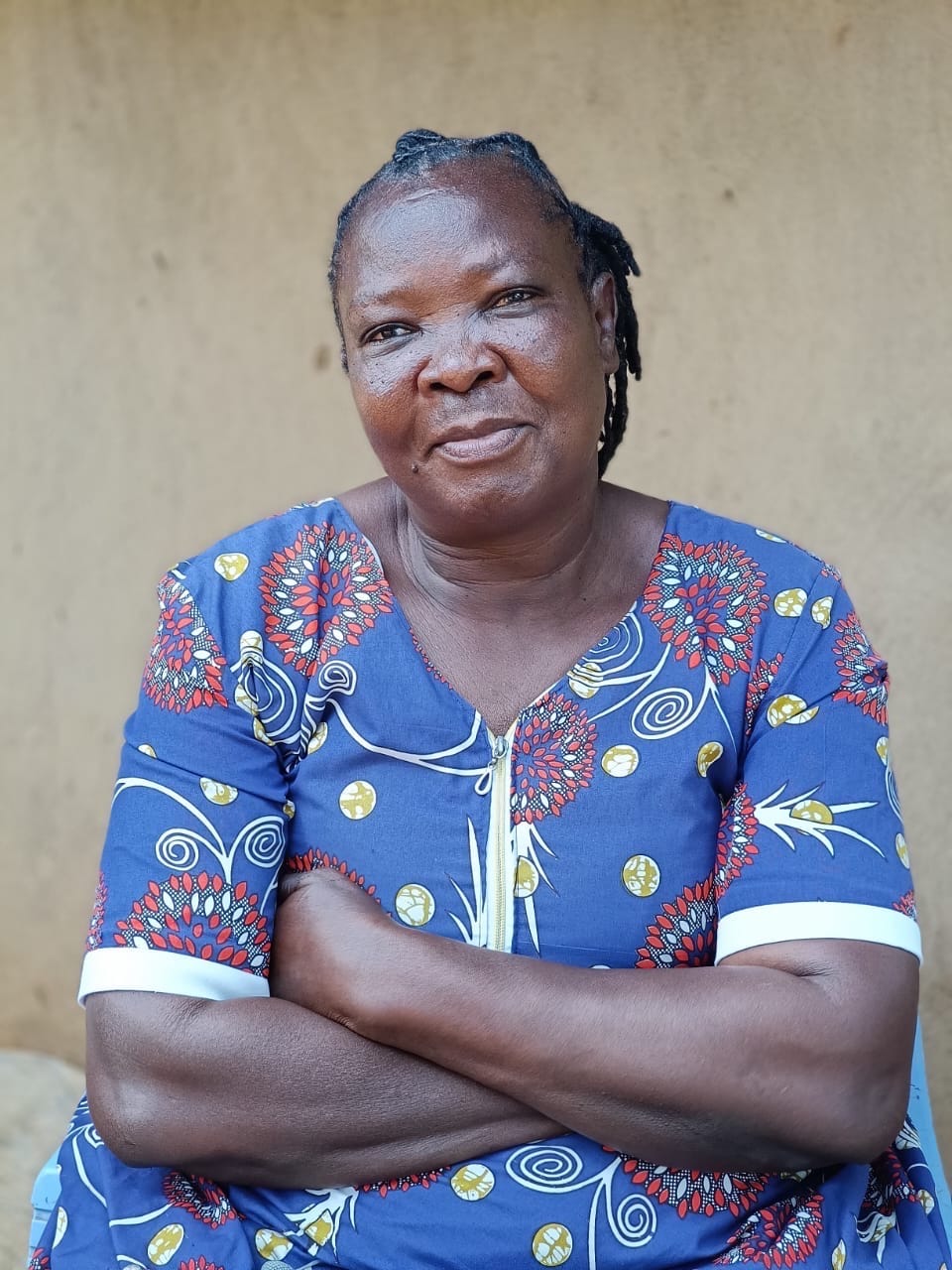Reconnecting Fields and Futures: MOTHERLAND‘s Mini Impact Report 2025
After almost a year of quiet, grounded work in the fields of Siaya, we are back, not with noise, but with the kind of steady progress that grows from deep roots. Between January and October 2025, MOTHERLAND has continued to prove that African farmers can lead Africa’s agricultural transformation, when given fair systems, regenerative tools, and access to digital knowledge.
This year, our collective work has continuously revolved around one simple idea: connecting African farmers with African solutions. From aggregating community harvests to digitizing data and testing AI-driven training tools, every step has been a conversation between land, people, and technology. We began the year with the aggregation of 3.5 tonnes of Nyota beans, collected from 250 farmers across Siaya County. What sounds like just numbers actually represents hundreds of fair transactions, moments when a farmer is paid on time, at a transparent price, for the food they grow. This reliability builds something more precious than profit: it builds trust.
Once aggregated, more than 4.3 tonnes of beans went through a meticulous process of sorting, drying, and treatment under our supervision. The goal was not only to prepare the produce for markets but also to raise the quality standards for seed certification. By October, 4,300 kilograms of beans had been stored and accounted for: 3,520 kg from the long-rains season, 780 kg of additional stock from community groups, 1,622 kg already sold, 1,500 kg prepared for the upcoming short-rains season as seed input, and 1,178 kg still in storage.
In total, these transactions generated a market value of roughly 3,855 Euro, with prices rising from about 0.90 Euro per kilogram at aggregation to 1.03 Euro in retail sales across Ugunja and surrounding markets. The increase may seem small on paper, but it represents a meaningful step toward community-level profitability and local market confidence.
Beyond logistics, 2025 was also a year of learning and digital strengthening. Together with our partners at eProd, we prepared and deployed a farmer data-collection tool that reached 143 farmers from 29 groups. The insights were powerful: 77 % noticed climate shifts, 56 % adapted their farming practices, 36 % began soil-conservation methods, and 78 % expressed interest in deeper climate-smart agriculture. These findings have become the backbone of Motherland’s future planning, proof that knowledge, when measured, becomes action.
On the production side, MOTHERLAND secured and supervised three test acres of certified bean-seed production, in partnership with KALRO and KEPHIS, ensuring full compliance with national regulations. At the same time, 150 farmers from our regenerative agriculture program received hands-on training in soil health, crop rotation, and organic pest management. These trainings are not theoretical, they are living exchanges where farmers co-design the future of their fields.
The eProd system itself was upgraded this year to align with MOTHERLAND’s new key performance indicators. Real-time tracking now makes it possible to see, at any given moment, who has received seeds, who has repaid, and which aggregation centers are most active. This level of transparency strengthens accountability and opens the door for future AI-driven analytics.
As the year moved into its second half, MOTHERLAND onboarded 353 new farmers for the short-rains season, distributing 1.5 tonnes of Nyota bean seeds as revolving seed loans. This model, where each harvest contributes to the next, embodies the regenerative cycle we are building: one that restores both soil and social equity.
Meanwhile, our AI chatbot prototype began its first field tests. Designed to run via WhatsApp, it offers localized advice, basic training modules, and real-time data collection. It’s an experiment in digital inclusion, ensuring that the next wave of agricultural intelligence speaks not just English or code, but the languages of the communities it serves.
Looking back, the numbers tell a story of quiet growth: from 3,500 kg of beans aggregated at the start of the year to 1,500 kg of new seed loans distributed this season, a 41 % increase in farmer participation within ten months. But behind every number are faces, families, and fields that now breathe a little easier because systems are starting to work for them.
The lessons are clear. Integrating digital tools with regenerative practices creates measurable, long-term impact. Transparency in pricing strengthens participation and trust. Local leadership, by young agronomists, women, and extension officers, accelerates resilience. And data-driven platforms, from eProd to AI, are reshaping how rural communities learn, decide, and grow.
As we step into 2026, our focus remains unwavering: to expand the Impact Teams, scale the revolving seed model, and deepen AI-enabled farmer support. In our coming articles we will introduce our new partners to you and share more about our unbreakable spirit to continue with our mission:
Food security, healthy soils, and local incomes - from within.
Thank you!, to every farmer, partner, and ally who continues to believe in the regenerative power of African agriculture. Every harvest, every dataset, every training session is a small act of restoration of people, of land, and of hope.




